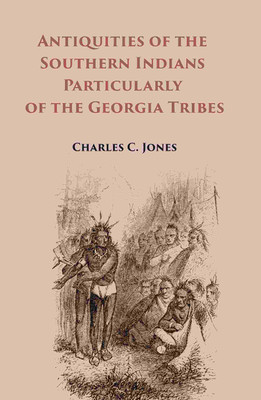Antiquities of the Southern Indians Particularly of the Georgia Tribes(Paperback, Charles C. Jones)
Quick Overview
Product Price Comparison
About The Book: Although the title intimates that our investigations have been directed principally to an examination of the antiquities of a single State, the present work will be found to embrace within its scope a much more extended field of observation. In prosecuting the proposed inquiries, 1t appeared both unnecessary and improper narrowly to observe the boundary-lines which separate modern States. It will be remembered, more-over, that the original grant from the British crown conveyed to the Trustees of the Colony of Georgia a territory greater by far than that now embraced within the geographical limits accorded to her as a State. A striking similarity exists among the customs, utensils, implements, and ornaments of all the Southern Indians: consequently, in elucidating the archeology of a region often occupied in turn by various tribes, it seemed appropriate to mention and contrast the antiquities of Virginia, the Carolinas, Florida, Alabama, Mississippi, Louisiana, and Tennessee. The accompanying plans of mounds were prepared from personal. surveys, and nearly every typical object used in illustration may be seen in the authorŌĆÖs collection. Most of these relics were obtained by me in situ. They are now figured for the first time. About The Author: Charles Colcock Jones Jr. (October 28,1831ŌĆōJuly 19,1893) was a politician, attorney and author from Georgia, United States. He was the mayor of Savannah, Georgia, immediately prior to Sherman's March to the Sea. Jones was born to Charles Colcock Jones Sr., a Presbyterian minister. He graduated with a bachelor's degree from Princeton University in 1852, then followed with a law degree from Harvard University in 1855. He married twice: first to Ruth Berrien Whitehead, then to Ruth's cousin once removed, Eva Berrien Eve (who had been a bridesmaid at their wedding). His son, Edgeworth Casey Jones (1867ŌĆō1931), became a prominent memorialist, having changed his name to Charles Edgeworth Jones. Jones became mayor of Savannah in 1860. Because of the war, he nearly lost his fortune and had to move to New York City. He was elected a member of the American Antiquarian Society in 1869. He was elected as a member to the American Philosophical Society in 1881. In 1877 he moved back to Augusta, Georgia. On July 19, 1893, Jones died of Bright's disease. He is interred in Summerville Cemetery in Augusta.


